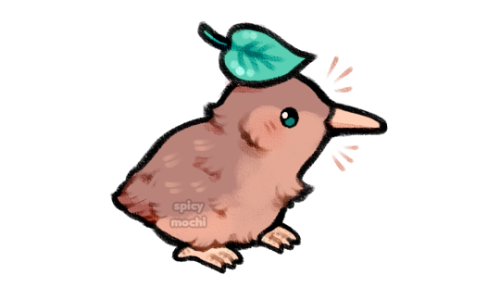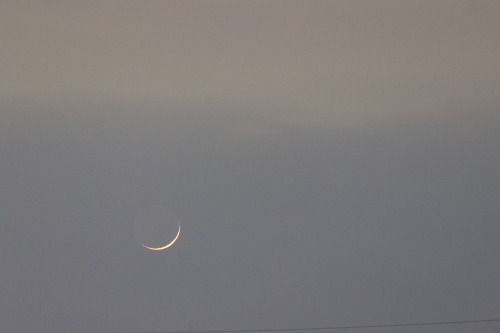Latest Posts by mystarypi - Page 2

follow me on twitter / instagram / patreon / shop / leave a tip


Released

Crossover to a better world

Swallowed

This is the Trifid Nebula! 🌺🌺🌺
With an age of around 300,000 years, this nebula is one of the youngest emission nebulae known. Its name comes from the multiple dust lanes across the nebulae that cover a newly born cluster of stars! ✨✨✨
Taken by me (Michelle Park) using the Slooh Canary Two telescope on August 24th, 2021 at 22:48 UTC.







♡ STUDIO GHIBLI + favorite quotes ♡

This is the Pelican Nebula! 🦢🦢🦢
The molecular cloud of dark dust on the left of this image separates this nebula from the nearby North America Nebula. This nebula is quickly changing as newborn, hot stars ionize the gas and push it around, leading to its expansion! 💖💖💖
Taken by me (Michelle Park) using the Slooh Canary Two telescope on August 9th, 2021 at 3:52 UTC.

This is Sharpless 101! 💕💕💕
This stunning HII emission nebula is also called the Tulip Nebula due to its flower-like shape. This field is close to the Cygnus X-1 quasar, which was one of the first detected black holes! 💞💞💞
Taken by me (Michelle Park) using the Slooh Canary Two telescope on August 8th, 2021 at 23:16 UTC.


Unborn.
–
Twitter / Shop / INPRNT / Patreon


This is Vega! ✨✨✨
This is the brightest star in the summer constellation Lyra and the 5th brightest star in the night sky. Infrared observations have confirmed a circumstellar disk of dust around this star, similar to the Kuiper Belt around the solar system! 🌃🌃🌃
Taken by me (Michelle Park) using the Slooh Canary Two telescope on July 5th, 2021 at 22:26 UTC.

Lagoon Nebula, M8, in Sagittarius ❤
Taken by me (Michelle Park) using the Slooh Canary Two Telescope, taken in August 2018.

This is Altair! ✨✨✨
As a part of the Summer Triangle asterism, this is the brightest star in the constellation Aquila. With a mass of almost 2 times the Sun and a rotational speed of 240 km/s, this star is actually more of an oval shape as it flattens out! 🌃🌃🌃
Taken by me (Michelle Park) using the Slooh Canary Two telescope on June 24th, 2021 at 00:46 UTC.

This is the Trifid Nebula! 🎀🎀🎀
With its name meaning “divided into 3 lobes”, this close-up picture shows the stellar beauty of this star-forming region. Containing an open cluster, emission nebula, reflection nebula, and a dark nebula, the Trifid Nebula is one of the most unique nebulae that makes it a common target for astronomers! 💖💖💖
Taken by me (Michelle Park) using the Slooh Chile Two telescope on June 12th, 2021 at 1:47 UTC.

Join Slooh for a special Star Party Live on Sunday, June 13th at 1 PM EST! ✨✨✨
The Slooh Ambassadors (which includes me) have been working on this Women are From Venus star party that hopes to encourage women to participate in astronomy! 🎊🎊🎊
Jenny McFarlane will be discussing how she expands astronomy outreach at her planetarium! There will also be other talks made by other Slooh women who are passionate about space. 🙌🙌🙌
All you need to do is to make a free account at Slooh.com and then watch the star party on the website! If you are a woman and would like to participate in the Zoom, send an email to paul@slooh.com for the Zoom passcode. Please let me know if you have any questions and I hope you can attend 💖💖💖


This is the Eagle Nebula! 🦅🦅🦅
This young cluster of stars and the distinct Pillars of Creation at the center of the nebula are located in the constellation of Serpens. These stars, which were formed in the HII region of this nebula, are very massive: some of them are up to 1 million solar luminosities! ✨✨✨
Taken by me (Michelle Park) using the Slooh Canary Two telescope on May 9th, 2021 at 00:36 UTC.

This is the Super Flower Blood Moon Lunar Eclipse! ✨✨✨
Although the Slooh telescopes were off at the time of the eclipse itself, Slooh did provide a great livestream on Youtube that you can watch if you missed the event. The name “super moon” comes from how the Moon is located closer in its elliptical orbit to Earth, the name “flower moon” comes from how the super moon takes place in May, and the name “blood moon” shows its red color due to the Earth blocking the Sun’s light on the moon! 💖💖💖
Taken by me (Michelle Park) using the Slooh telescopes on May 26th, 2021.

This is the Eagle Nebula! 🦅🦅🦅
This young cluster of stars and the distinct Pillars of Creation at the center of the nebula are located in the constellation of Serpens. These stars, which were formed in the HII region of this nebula, are very massive: some of them are up to 1 million solar luminosities! ✨✨✨
Taken by me (Michelle Park) using the Slooh Canary Two telescope on May 9th, 2021 at 00:36 UTC.

different worlds

mini kiwi




This is the 2021 Pink Supermoon!🌜🌷🌸🌹🌺🌼💐💮
Although this moon is not pink, the name “Pink Moon” is named after the pink phlox flower that appears in the spring during the time of this event. This rare celestial event won’t happen again for another 8 years so be sure to check it out! ✨✨✨
Taken by me (Michelle Park) using the Slooh telescopes on April 26th, 2021.


Experimented with cool and warm colours :) 💙


Heat of Memories

This is the Orion Nebula! ✨✨✨
Thought to be a cosmic fire of creation by the Mayans, the Orion Nebula’s bright, vibrant colors come from the massive stars in the open star cluster at the center of the nebula. This star forming region is giving birth to thousands of stars, each of them only a few million years old! 💫💫💫
Taken by me (Michelle Park) using the Slooh Canary Two telescope on March 21st, 2021 at 22:53 UTC.


Moon (Feb. 13, 2021)

